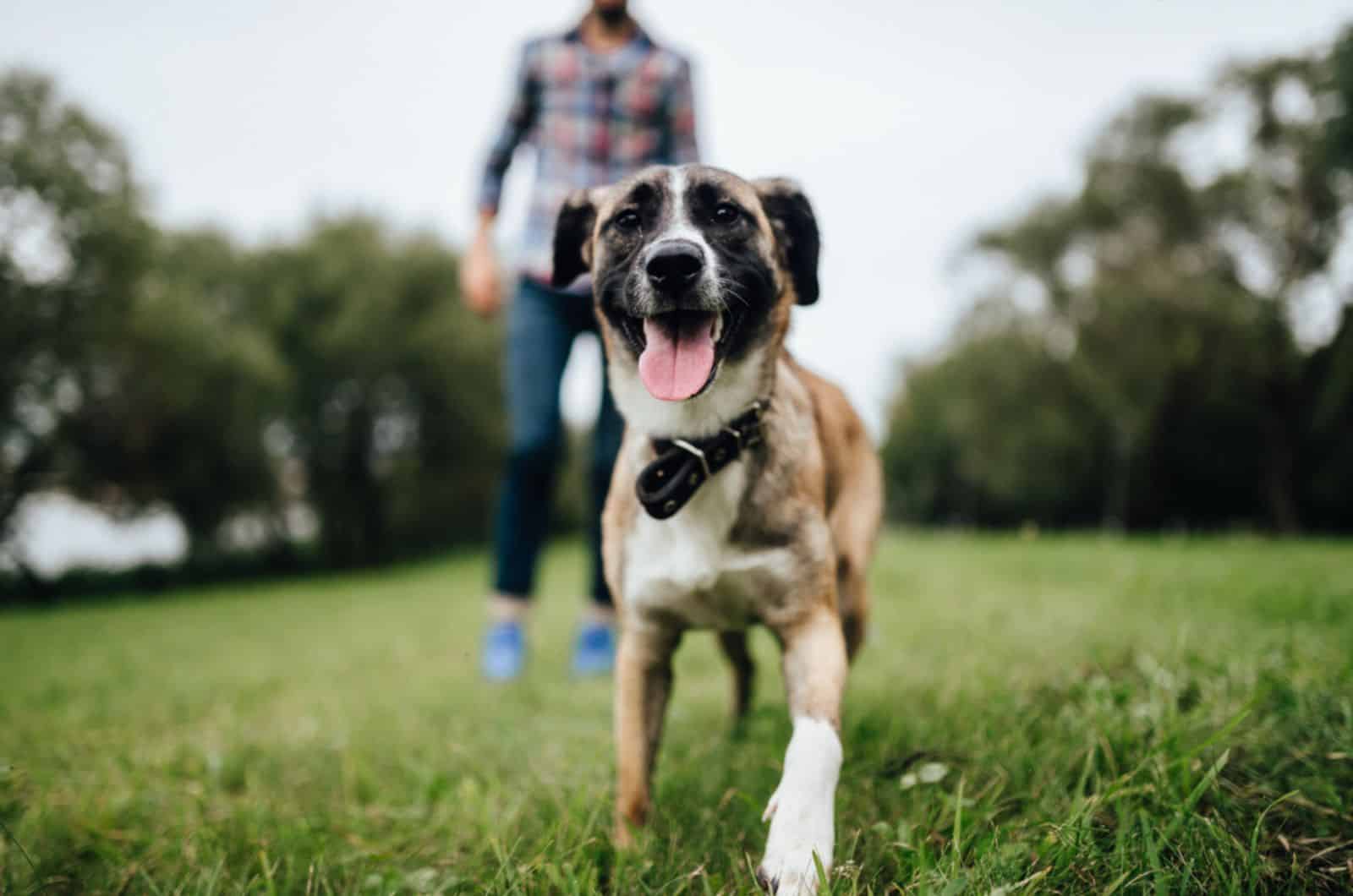Parenting a dog is a wonderful experience, but at times, it seems like mission impossible. The “Why does my dog run away from me” phenomenon is just one of many miseries dog owners have to deal with.
Many breeds have a true wandering spirit that makes them quite hard to handle. They run, jump, and escape, which is why it is almost impossible to regularly train them in dog parks or anywhere in particular.
But, what are the other reasons behind their running away? And, is there any cure for such behavior? Stay tuned because we’re about to disclose some pretty pawesome facts!
Why Does My Dog Run Away From Me?
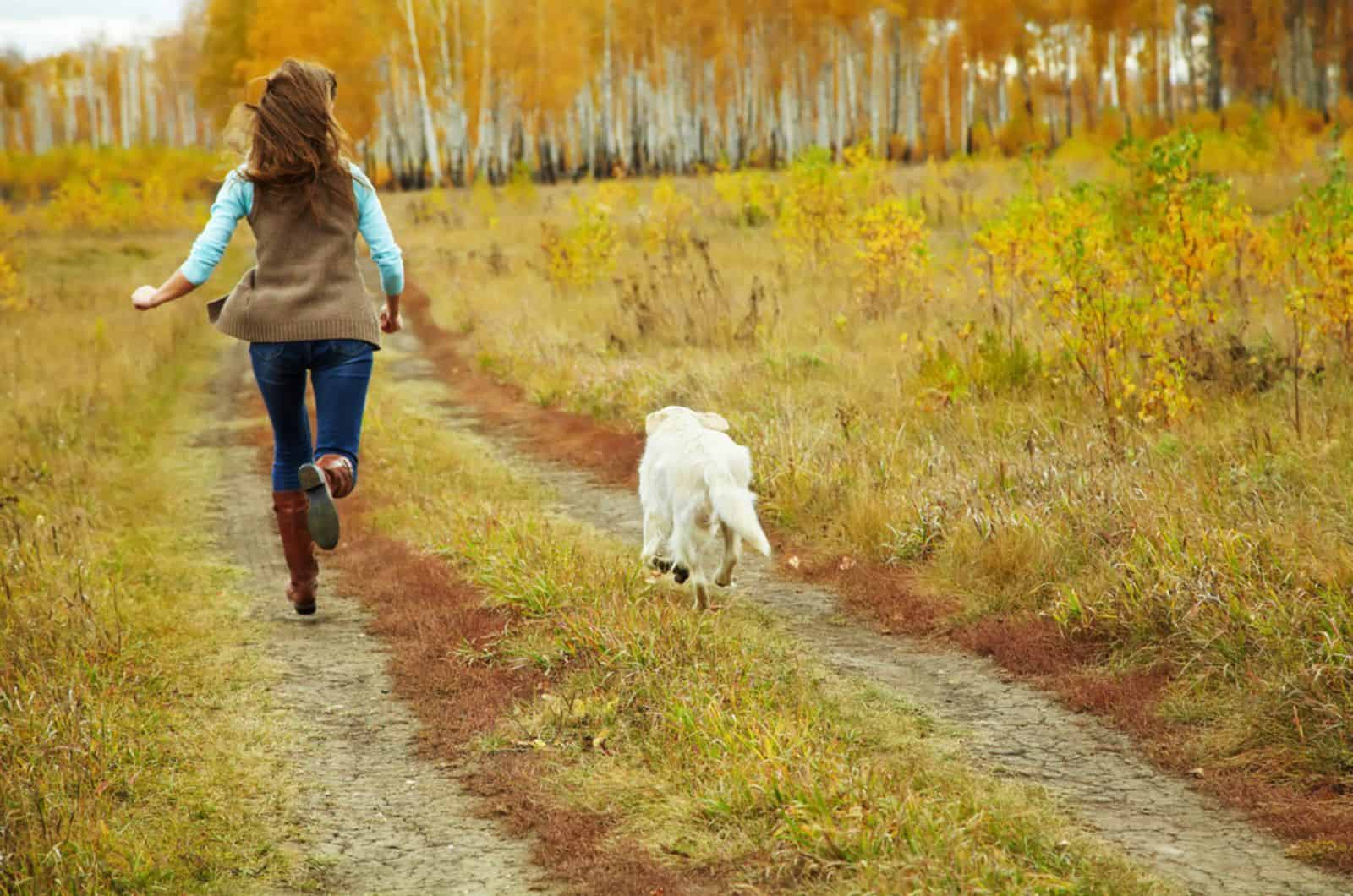
Even though some dogs are just natural escape artists, the “why does my dog run away from me” question is not always rooted in their natural temperament.
Quite the contrary – most of the time, dogs run away due to some external factors, such as improper parenting, imposed aggression, or biological changes. But, what are the other reasons behind this overwhelming phenomenon?
The following list contains seven most common reasons for this strange behavior in dogs. The advice is to use it for revisiting your current parenting methods. This way, you can easier neutralize your puppy’s behavior and see where you keep making the same mistakes.
1. Breed-Related Curiosity
There are two types of breed-related curiosity in dogs. The first is their natural temperament. Breeds like Huskies, Frenchies, and Griffons are simply curious, and they love spending time outside searching, investigating, or questing.
The other breed-related curiosity type is triggered by lack of mental stimulation and boredom. Some of the smartest dog breeds in the world can be truly overwhelming if you don’t give them enough to “think about.”
Consequently, we can say that inadequately-stimulated smart dog breeds tend to be overly curious and distracted by external factors, which eventually leads to running away and escaping from their owner.
2. Excitement
Excitement is another reason behind the “why does my dog run away from me” dilemma.
Many dogs use odd body language signs to express their deepest emotions. By the same logic, some dogs tend to run away from their owner to express their excitement over something.
This is usually the behavioral pattern of puppies below eight to ten weeks of age. At this age, puppies are still inadequately socialized and trained, which consequently leads to lack of obedience, too.
But, don’t worry because even the most excited puppies get easier eventually. All you need to do is be patient and persistent with your training methods.
3. Heat Period

One of the worst possible reasons that a dog owner can deal with for a dog running away is heat. This is because dogs in heat generally become hard to handle, self-destructive, way too emotional, and sometimes even aggressive.
To make things even worse, a dog’s heat cycle is not exactly short-lasting. It lasts between two and four weeks, every three to four times a year.
In order to avoid this unpleasant behavior, the best you can do is spay or neuter your dog before it gets impossible to maintain. Generally, the best period for these procedures is between six and twelve months of age.
You need to make sure your pooch is not too young for spaying / neutering, but at the same time, you don’t want to wait too long. Dogs spayed or neutered in the latter stage are more likely to need more time to recover.
4. Separation Anxiety
Unfortunately, canine separation anxiety is also one of the reasons for this sort of behavior. Dogs that run away from their owner due to anxiety are usually way too deep in this problem, which is why they require immediate help.
Even though separation anxiety is more common for some dog breeds, such as Chihuahuas and Labrador Retrievers, this problem can affect all dogs. Puppies that spend most of the time with their owner generally have a harder time being separated.
In this regard, you need to pay attention to the breed’s natural temperament before actually adopting one. On the other hand, you can always try training your dog for a few hours of solitude if your daily schedule is not flexible enough.
Still, bear in mind that this is a gradual process that takes time. Any sudden change could deeply affect your pet.
5. Stress Or Trauma
One of the most common reasons behind the “why does my dog run away from me” phenomenon is stress or trauma.
Traumatized dogs generally have a much harder time dealing with emotions and various circumstances than a happily-raised puppy. This way, it is not uncommon for dogs to run away if they feel uncomfortable in certain situations or in certain environments.
Generally, yelling at your dog or hitting it is never an option to consider. Dog owners who do these harsh things are highly likely to deal with professional escape artists. The other side of the coin is that a traumatized dog will probably use aggression as a self-defense mechanism.
6. Boredom
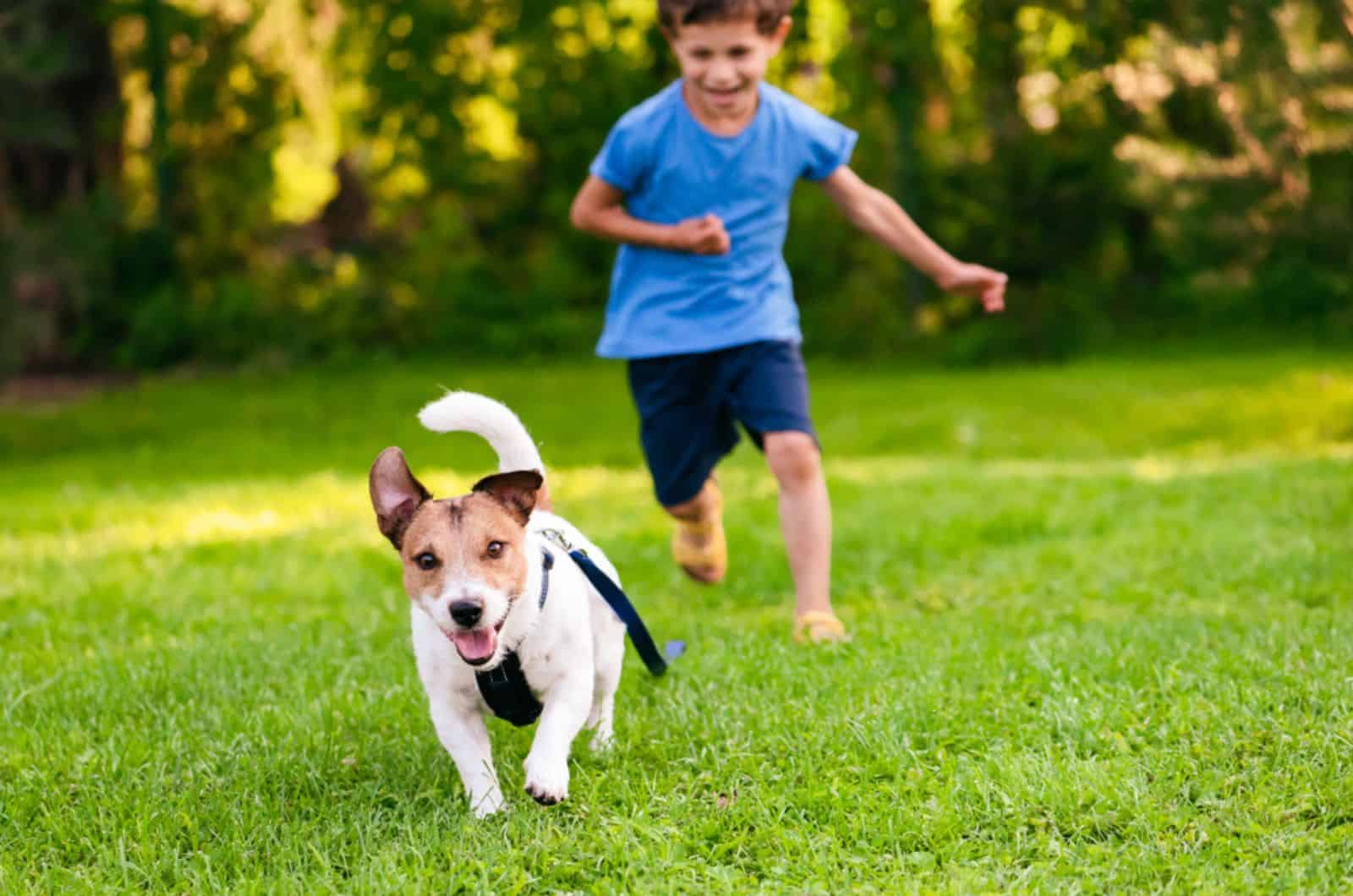
Some of the most intelligent dogs, such as German dog breeds, tend to be easily bored if not stimulated on a daily basis. These pooches simply love being challenged by complex tasks. If you miss out on doing that – they will challenge themselves with or without you.
Boredom is mostly related to medium to large dog breeds that have a much greater athletic potential.
On the other hand, some lazy breeds are highly unlikely to develop this behavioral pattern as they are just happy with what they have.
7. Lack Of Training
That’s right! Puppies that don’t receive a proper amount of training during the day are highly likely to respond by this undesirable behavior.
Bear in mind that here, we don’t exclusively talk about daily exercise, but about socialization and obedience training.
Puppies that don’t develop sufficient socialization skills generally don’t have the potential to bond with their owner the way properly-socialized puppies do. That’s why early socialization is much more recommended as socializing an aggressive adult dog is way more complex.
On the other hand, dog owners who miss out on obedience training cannot expect much from their canines during adulthood. Lack of obedience training is one of the main triggers for dogs running away, both at home and in dog parks.
How To Prevent Your Dog From Running Away
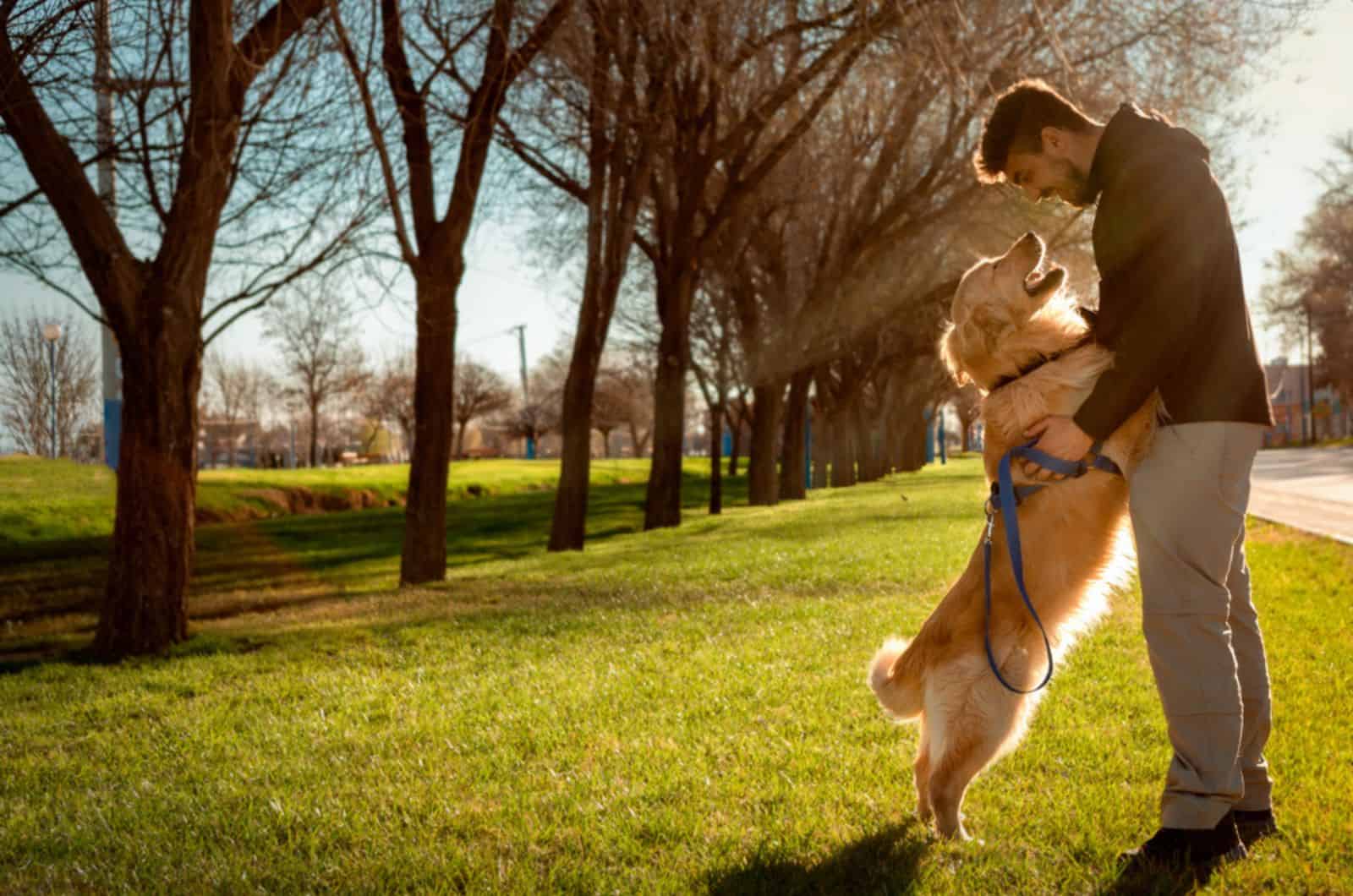
1. Early Training
There are two types of training that every dog owner should consider – socialization and obedience. The first one is needed for a dog to bond with its new family and environment.
Socialized puppies are generally prone to developing a wonderful relationship with their owner. Additionally, this type of training boosts a dog’s self-confidence, and prevents stress and trauma in the future.
On the other hand, obedience training for dogs is a great way of developing your pet’s good manners. Obedience-trained dogs are highly unlikely to have emotional outbursts or to misbehave both in public spaces and at home.
2. Keep Your Dog Inside
If you’re afraid that your dog might run away from the back yard when you’re not at home – just keep it inside. This way, you will make sure your puppy is not in danger as many family dogs don’t know how to behave in public without their owner.
As it is not common for all dogs to do well inside a house (as not all dogs are lap dog breeds) – you need to make sure your puppy is properly house-trained.
Get a comfortable dog bed. Entertain your puppy with toys or dog games. Prepare a nice potty. And, always keep their water approachable. This way, you will ease your puppy’s first couple of days inside the house and help it adapt better.
3. Keep Their Environment Entertaining
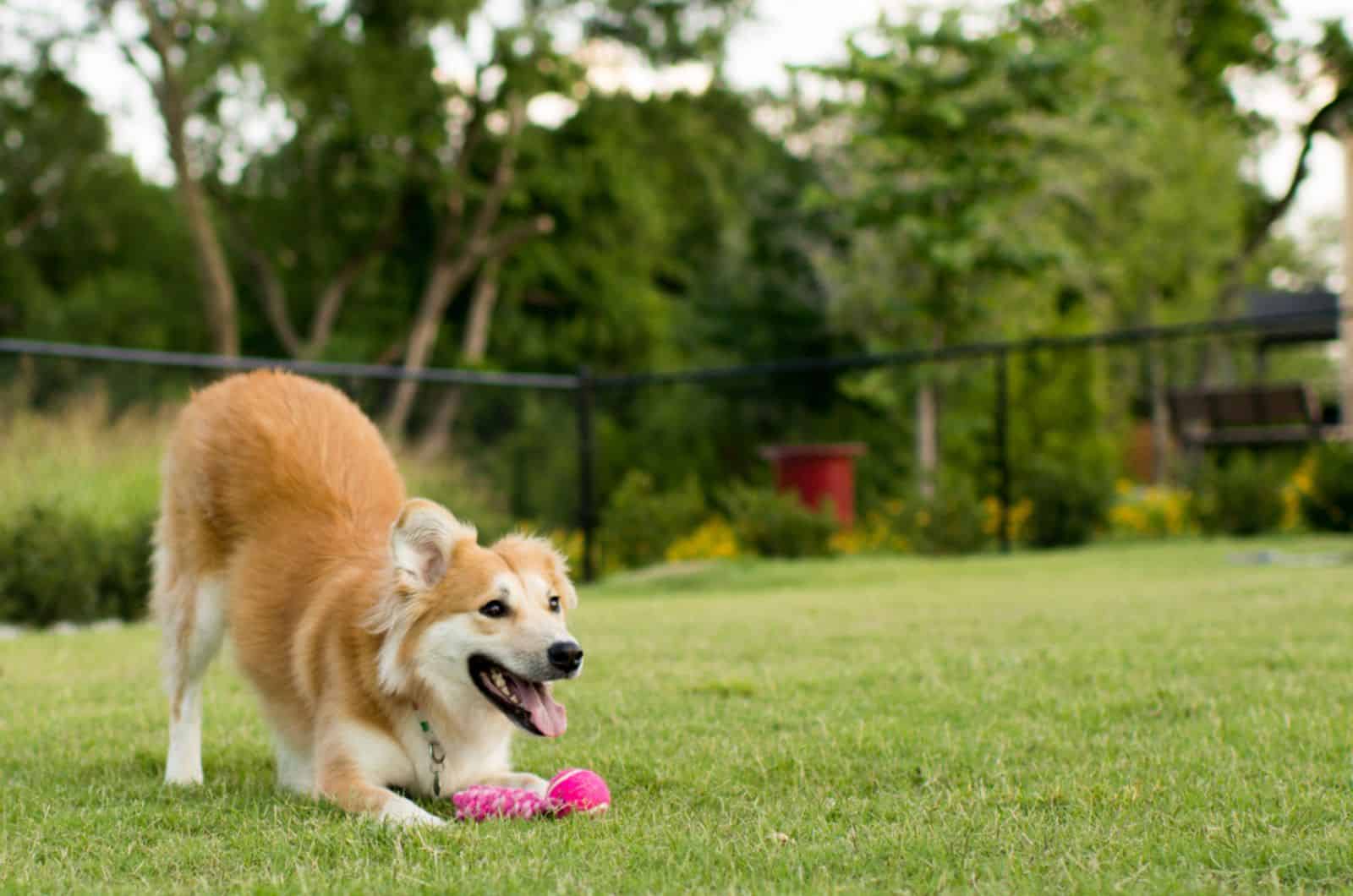
Both indoor and outdoor dogs have to have a certain amount of fun and entertainment when they’re not around their owner.
In that regard, you should try introducing your puppy to interactive dog toys or interactive playgrounds when you are there. Teaching your dog to use this kind of entertainment can have a positive impact on them in times of solitude.
They will go through the solitude period easier, and at the same time, they will have a lower chance of getting separation anxiety or stress. Additionally, you will impact your dog’s activity level in a positive way!
4. Get A Second Dog
Even though this might not be the best idea for first-time dog owners or for people with a busy schedule – getting a second dog might be extremely helpful in this regard.
Dogs that have company in their house don’t have such a big need to seek entertainment outside. The more the entertainment is dog-like, the better!
There are a few things to watch out for when getting a second dog, though. The first is to make sure your puppy is friend material! Even some of the best family dogs are highly unlikely to get along well with other dog pets, so beware.
The other thing is proper adaptation and introduction. Never keep dogs together without a previous introduction, as even the greatest family dogs need a certain time to adapt.
Generally, dogs need at least a few weeks to a month to get to know each other, and to get used to each other’s company.
5. Use Positive Reinforcement
Last, but not least – positive reinforcement! Puppies that were raised and trained by using positive reinforcement methods tend to be more friendly and attached to their owner. Hence, the less chance of running away.
Sometimes, even the least obedient dog breeds in the world get better with positive reinforcement. So, pet, praise, and reward!
Conclusion
The “why does my dog run away from me” phenomenon is not that uncommon in dogs that are naturally curious. Still, the majority of dogs tend to run away from their owner due to some external factors, such as separation anxiety, fear, stress, trauma or excitement.
In order to find the root of this problem, you need to get to know your puppy in detail. Revisit your parenting methods. Renew some of the training methods. And, always pay attention to your dog’s needs.
Hopefully, you can find some useful tips in this article that might help you detect the running away mystery in your pet.
Read more: Is Your Dog Refusing To Walk? Here’s What You Can Do To Help
